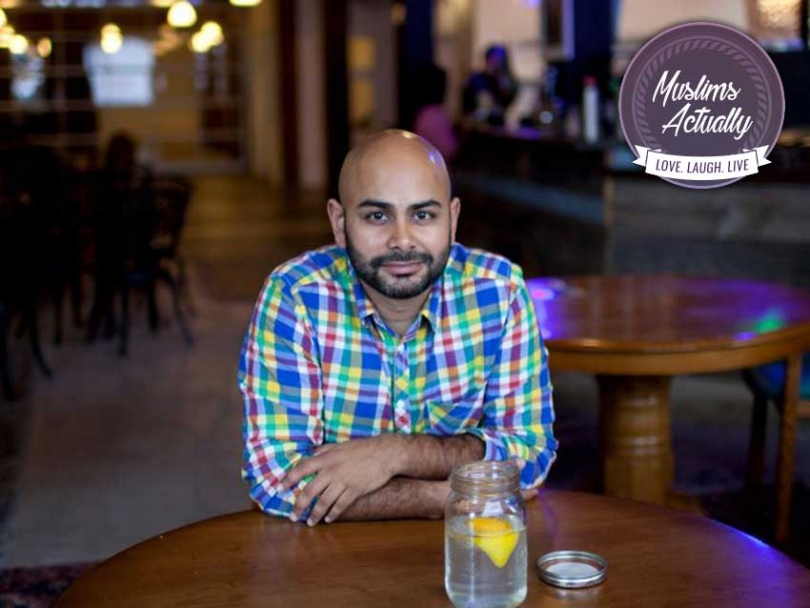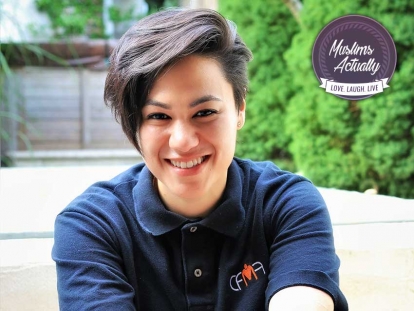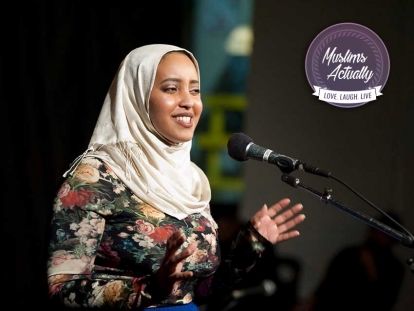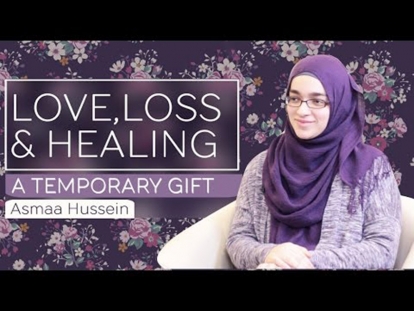 Interview with Adil Dhalla, the Director of Culture at the Centre for Social Innovation in Toronto.
Interview with Adil Dhalla, the Director of Culture at the Centre for Social Innovation in Toronto.
Jan
Adil Dhalla is the Director of Centre for Social Innovation (CSI) – a rapidly growing hub for more than 1000 social entrepreneurs and organizations. As one of the first coworking spaces in the world, CSI has been a pioneer in its work around re-envisioning the future of work, which includes the creation of the Director of Culture role (one of the first of its kind globally). Along with his team, Adil has been learning, playing and experimenting with stewarding CSI’s culture through its stories, events, policies, products, systems and people management – all with an eye towards fostering belonging, happiness and greater impact. In addition to his work at CSI, Adil has been a serial social entrepreneur, Co-Founded the mobile video pioneer My City Lives, volunteered for the Obama campaign and has created several successful community interventions, including Project Ukulele Gangsterism, Part E-Day and the Regent Park Community Potluck. He is currently the Chair of the Board for the Stop Gap Foundation, an inspiring organization creating accessible cities and a Co-Founder of Camp Reset, the acclaimed summer camp for adults.
Where were you born and raised and what did you study?
I was born and live in my favourite place in the world, Toronto. I’ve lived here for most of my life but spent nearly a decade living elsewhere – New York, Tanzania and the UK to name a few – for school (History BAH, MBA), work and travel. Subsequent to school, I’ve primarily studied cities, culture, social innovation and basketball.
Was there a defining moment in your childhood or adolescence that led you on the path that you are walking today?
There were of course many, but if I had to pick one, the divorce of my parents would be it. It was hard, but also the right decision and it forced me to grow very quickly for so many reasons. The irony to that positive personal development is that when it happened, the biggest question was how it would affect the kids (the insinuation being that it would have a negative effect).
A lot of that kind of judgement came from our religious community. Muslim divorces were (and continue to be, but to a lesser extent) uncommon. This challenged my belief system and while I experienced various forms of discrimination before (and after), this was the first time I really identified my interest in the topic of inclusivity. I think this was because the challenge came from within my own community. I felt ‘othered’ and while that was inherently a negative place to be, the sadness also became my catalyst for developing ambition (personal success became the best agent to proving people wrong) and understanding what I stood for. It hurt to feel like I didn’t belong, but this also inspired me dedicate my life towards ensuring others don’t feel the same.
Finally, the divorce meant that although I was raised by both my parents, I lived with my mother and two younger sisters. This experience was critical, if not the catalyst in my evolution towards becoming a feminist. It took me years to connect the dots and fully understand the systemic problems related to gender equality (and I still have so much to learn). But I am so appreciative to have been surrounded by courageous and strong women growing up because they have taught me that I have a responsibility in this movement.
What role has family played in your leadership journey?
It’s hard to be succinct with this one, only because there is so much. I talk to my parents almost every day. Mom calls me when I’m en route to work and dad somewhere around dinnertime and they are constantly imparting ways to live, love and lead mostly by their own examples.
My father, for example, has recently welcomed a family from Syria into his home and is now collecting furniture for more families to be hosted. His relationship between self and responsibility has always taught me so much. My mom, meanwhile, is the most prolific gifter I know. Her thoughtfulness and the intentionality she puts towards bringing joy to others is imprinted all over my life. They’re also imperfect (like us all), but their commitment to my sisters and I has been the greatest and most appreciated lesson. They’ve also helped me repair my feelings towards Islam by showing me its relationship between religious practice and social good.
Of course, family extends beyond ones parents and I’m in constant awe and appreciation for the courage and sacrifice my extended family made when they immigrated to Canada from Tanzania. I honour, especially, my elders for the leadership role they played with my family as the immigrant experience is so hard and requires sacrifice, hard work and a deep sense of responsibility to others.
Finally, my two younger sisters have had an immense impact on my journey, both because of who they are and because of the role I played with them growing up, as older brother and ‘man of the house’. They gave me space to lead and told me, with love, when I could be better. With Amira now being a social justice activist with the Mozilla Foundation and Azra returning to Tanzania to create impact with the Aga Khan Foundation, I am so proud and inspired by them.
What inspires you? Are there certain people in your life who inspire you or that you see as role models?
If I were to have a 10 person dinner party with the people who have most inspired me, invites would go out to the late Jack Layton and Barack Obama, who have inspired me through their commitment to be consensus builders and take the higher road. In a similar vein, Ghandi would get an invite as his message of nonviolence as a means to conflict resolution has influenced me deeply. Also at the table would be city builders like Jane Jacobs, whose belief that cities are for everyone has catalyzed much of my current thinking and Drake whose responsibility to his city has been a source of inspiration, in addition to his contribution to the arts. Social innovation heroes and activists like Tonya Surman (Founder of CSI), Bob Hunter (Founder of Greenpeace) and Guy Laliberte (Founder of Cirque Du Soleil) all have to be there too. Finally, the Aga Khan, leader of the Shia Ismaili community would get the final invite. His invite has less to do with my religious affiliation and more about my affinity with his messages of meritocracy, volunteerism and pluralism. These have been pillars in my life.
I’d like to acknowledge that I know that only 2 of the aforementioned people are women. I’m really struggling with that. I think this is largely indicative of our systemic issues around gender inequality (i.e. not learning enough about women leaders in school, media biasing towards men, there not being enough leadership roles for women in general, etc.) but I also want to accept responsibility here because I know there are examples out there. And even if there weren’t, I know I need to play a more active role in ensuring that there are.
Finally, as good as that dinner would be, I recognize the inherent challenge to the fact that these inspiring people are at a distance from my daily life. Thankfully, I am exposed to inspiration every day through experiences with my friends, colleagues, collaborators and even strangers. I firmly believe that anyone can be a source of inspiration if we listen to their stories and we are open to learning.
You are the Director of Culture at CSI, please tell us how you got here and what that means?
I have been starting social mission start ups for years and it was a perfect fit for me to move into the Centre for Social Innovation in 2011 while working on my last start-up. As things winded down with My City Lives, Tonya Surman and I started talking about the culture of CSI and our shared interested in creating a role around it. Pioneering is in the core nature of CSI and the idea of being their Director of Culture, the first of it’s kind globally, tapped into my interest around inclusivity and our belief that the concept of “work” requires a reboot.
Over the last 3 years, I’ve had the incredible privilege of serving the CSI community through being the organization’s culture steward. Philosophically, this means that I am obsessed with the notion of inclusivity and belonging, since culture is essentially a container of norms and beliefs held by a specific community. And practically, this means that I am ensuring that every system, event, program and product we create, stems from our values (our culture’s DNA). I’m just as likely to be working on a program to ensure new members of our community are being welcomed well (Human Resources) as I am to ensuring that our spaces are functioning the right way (Operations) as I am to ensuring we are telling the story of our culture (Communications). I manage a team of 14 people who are primarily responsible for the management of our 4 Toronto locations, our communications and our events.
So there’s a very day-to-day side to my role and then there’s the opportunity to experiment and hack together interventions for various reasons. Some examples of the things that I have co-created while at CSI include:
- The Regent Park Community Potluck, which has been an incredibly successful tactic towards fostering social cohesion and inclusivity in the transforming Regent Park neighbourhood.
- The Agents of Change City Builders program, which is an accelerator for 10 high potential organizations focused on making our cities better.
- Project Ukulele Gangsterism, which was our attempt to hack the subway system to create happiness through mass ukulele activism (you read that right).
- Part-E Day, a positive disruption of voting stations that aims to systemically address voter turnout issues.
- And outside of CSI, although very connected, Camp Reset, which is a summer camp for adults that uses play as the social lubricant to foster wellness and connectivity.
The game plan with our culture work is to open source what we’ve learned in the near future to help others master this kind of work. Stay tuned…
Why social innovation and social enterprise? Is that the best way to create social change?
Social enterprise has become such an important agent for social change because it marries doing good with business by equally prioritizing profit and purpose. There is so much power and potential here and I really believe this is the way we need to go. We need business to be a part of the solution as much as we need government and citizens to be. As we say at CSI, it’s up to us to all possess a deep sense of responsibility for creating the world we want and I think social enterprise provides a model for business to embrace that.
Social enterprise is a powerful agent for social change, but it’s not necessarily the best and definitely not the only. Social change requires a plethora of levers to work together to challenge the status quo and complex systems. Advocacy and activism as well as traditional non-profit and charitable models are all equally as important to the change process. As I said, government, business and every one of us are also important. So, I’m less interested in which one is the best and more interested in how all these different things can work together, guided by their respective self interests but glued by their common purposes.
Where do you see yourself in 5-10 years?
I have at least a few more years with CSI, based on what I currently have on my plate and queue. After that, it’s hard to say as we’re growing so quickly that there will be new opportunities that aren’t obvious to me today – or I may venture back in the entrepreneurial world. No matter where I am, I know I’ll be focused on social impact and specifically, how to create a more inclusive world where we put people and planet first.
This article was produced exclusively for Muslim Link and should not be copied without prior permission from the site. For permission, please write to info@muslimlink.ca.















